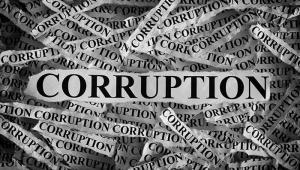These decisions followed a debate by the IMF executive board on a report on its role in governance.
This looked at how well corruption was addressed in economic reviews and fund-supported programmes in member countries “against a growing recognition that systemic corruption can undermine the delivery of sustainable and inclusive growth”, an IMF statement said.
It said there had generally been good progress on implementing the 1997 guidance that underpins IMF policy in this field.
But it said the fund’s activities could be improved by establishing a better method of assessing the extent of corruption and its macroeconomic impact and providing more candid assessments on the scale and cost of corruption when it undermined macroeconomic performance.
IMF executive directors said there had been an increasing recognition since 1997 that systemic corruption has “a particularly pernicious effect” on economic performance.
The impact of corruption on a state’s ability to carry out its functions increases as corruption becomes more systemic and acute, directors felt, and this could exacerbate inequality because of the distortions in expenditure created.
A majority of directors agreed the IMF should continue to address corruption where it had a significant macroeconomic impact, though some felt it should limit its engagement to areas where it has a clear competence and not become involved in investigations where it lacked expertise or interfere in national politics.
The majority urged greater clarity in staff’s reporting and recommendations regarding corruption, though some warned that direct language could have an adverse effect on the IMF’s engagement with its members.







